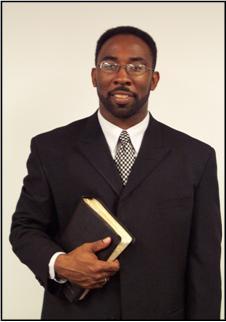
I have a very simple message today. “Do Not Judge!” “Do Not Judge!” For the church, this is one of the primary sins that will prevent us from being effective in the lives of others. Many times in life we can see what others are doing wrong; however, when we see their wrongs we are not committed to helping them make it right. A part of the ministry, that we are not called to, is passing judgment that condemns others for their wrong doings.
In today’s text where Paul is writing to the Romans, he transitions from those who may be doing wrong to those who know what is right, those who are passing judgment on others and yet they are practicing the same things. The idea of judgment draws a picture of one sitting in their black robe behind the judge’s chair and rendering a sentencing on others and yet when they take off their robe, they are doing the same things they just condemned another for doing.
Paul ends chapter one of his letter to the Romans by saying, “and although they know the ordinance of God, that those who practice such things are worthy of death, they not only do the same, but also give hearty approval to those who practice them”. (Romans 1:32). This letter gives us valuable direction and insight on how to deal with the sins of others and how God will deal with them.
The excuse for the one who knows the ordinance of God has been eliminated; therefore, Paul says:
1. If we judge another for his sins and practice the same things, we condemn ourselves.
2. We also recognize that the judgment of God will fall on those who practice this type of judgment on others.
Therefore, we ask the believer this morning, “Who are we to judge?” I am not saying we cannot and should not point out what is right or wrong about a situation or something a person is doing; however, condemnation goes to sentencing and punishment. For us, God has forgiven us and now we want to condemn others.
In Matthew 18:23-35, there is a parable I would like to draw to your attention. This parable is of repayment of a slave going to his lord about a debt and asking for patience on the repaying of what he owed. The lord felt compassion and released him and forgave him the debt. But when the slave was approach by a fellow slave who owed him money, he seized him and began to choke him and demand he give back what he owed. In this case, the lord who had forgiven the wicked slave summoned him and asked him how he could not have mercy on a fellow slave when he, the lord, had mercy on him.
This morning, as we prepare to go into this short series on “Who are we to judge?” I am challenging us to be careful passing judgment. I am not advocating continuous sin; but, the reason many of our churches are not full today is because of self righteous church folks who sit around and condemn others while practicing sin themselves. Later in Romans 8:1, Paul will say there is no condemnation for those who are in Christ Jesus.
Not only is there no condemnation; but, today Paul is warning that the judgment of God will fall on those who practice such things.
As you read this week’s message, I ask you to spend this next whole week not judging. Not judging means, making a self determination of how wrong someone else is about their situation and determining what penalty should be rendered. Instead when we see a wrong are challenged to ask what can we do to help. Help don’t hinder. Build up but don’t tare down. Christians are in the ministry of reconciliation.
I leave you with this prayer, “Lord, help us not to judge when ultimately judgment will come back on us if we are doing the same things. Thank you for your patience and mercy with us. Help us to grant the same thing to others.” In Jesus name, AMEN

